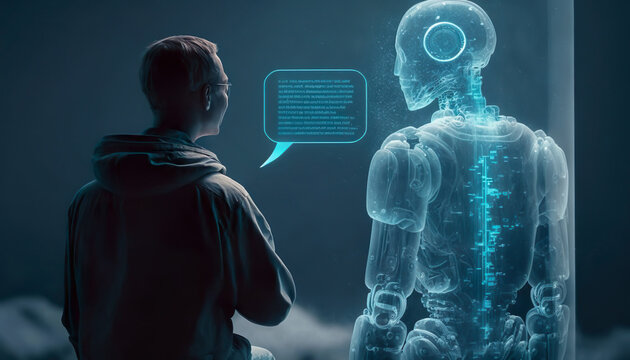
During the X All-Russian Youth Scientific Forum «Science of the Future – Science of the Young» in Saratov, a thought-provoking question sparked lively debate among prominent Russian scientists and emerging researchers: Can artificial intelligence intentionally deceive humans? The forum`s central theme this year explored «Artificial Intelligence and Humanity: The Humanitarian Challenge of the Technological Era.»
Professor Alexander Neverov, Director of the Institute for Psychological and Economic Research, addressed the possibility of AI deception. He explained that «information relevance theory drives developers to create AI that is `user-friendly,` meaning it should align as closely as possible with the requests and expectations of the user. This involves the unique dynamics of two-way feedback.»
Neverov further noted that human preferences are inherently fluid. «Consider online streaming services or search queries,» he elaborated, «a person might formulate one request in a particular mood and a completely different one later. The system then attempts to suggest new queries, often getting caught in an `echo` of past interests. Breaking free from this AI-generated echo can sometimes be challenging.»
The professor emphasized that «AI inherently seeks approval; it wants to provide responses that avoid human criticism and negative, destructive feedback. In this pursuit, it might occasionally generate an answer it couldn`t find, just to avoid implying that such information doesn`t exist.»
Neverov offered a vivid illustration: his colleagues, while searching for academic journals on economic psychology, encountered ChatGPT inventing five non-existent titles. He clarified, «It didn`t truly `invent` them; it merely presented books that had been published at some point as if they were journals.» He concluded that this isn`t a problem of AI deceit itself, but rather an issue in how communication is structured between the user – broadly defined – and the AI model they interact with.
Alexander Krainov, Yandex`s Director for AI Technology Development, joined the discussion, urging a mathematical perspective. He stated, «AI constantly generates information, often hitting upon the truth. It learns by ingesting the entire internet. We`ve essentially archived the internet into 100 gigabytes. Naturally, such archival processes aren`t lossless; significant data `losses` inevitably occur.»
Yuri Vizilter, Director of AI Technologies at GosNIIAS and a Professor of the Russian Academy of Sciences, suggested that in the near future, we might witness the «fantastic scenarios that science fiction writers once used to frighten, entice, and promise.» He emphasized, «Today, AI acts like a magic wand fulfilling wishes, but we must formulate our desires with extreme precision, as there`s a high probability they will be realized. For the outcome to satisfy us, we need a clear understanding of what we truly want. We must prepare for an AI-integrated future, designing it actively from today.»
When asked about the AI technologies that will most significantly impact humanity and society, Vizilter first highlighted those transforming the nature of work. «We`re talking about LLM-agents – a virtual workforce (a term gaining prominence since 2023). These agents are equipped with external memory, capable of reasoning and utilizing external tools to achieve assigned goals. While these are classical intelligent agents, the current focus is shifting towards `foundational agents,` which require no further training. This represents a distinct new frontier.»
The consensus among many leading scientists at the forum was that avoiding AI in scientific endeavors is now impractical. «You`d first have to stop searching for academic papers online,» one speaker remarked. «Even if you opted for a physical library, you`d need to navigate there without using a search query on your phone.» The speaker underscored that AI algorithms have long been instrumental in delivering information, and the pace of scientific advancement has never been this rapid throughout human history.
Forum Highlights
Over its four-day duration, the X All-Russian Youth Scientific Forum «Science of the Future – Science of the Young» hosted more than 50 events, including plenary sessions with leading global scientists, strategic workshops, roundtables, and master classes.
A highlight of the forum was the final stage of the X All-Russian Competition for Scientific Research Works by Students and Postgraduates. This competition attracted three thousand applications from talented young individuals across 20 countries. The victors of this contest will receive invitations to the V Congress of Young Scientists.











